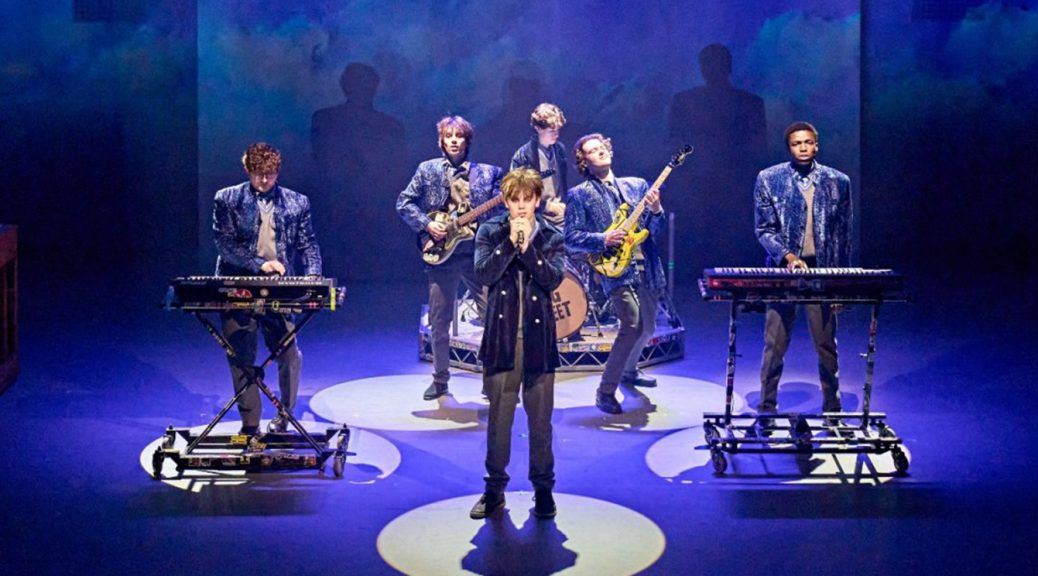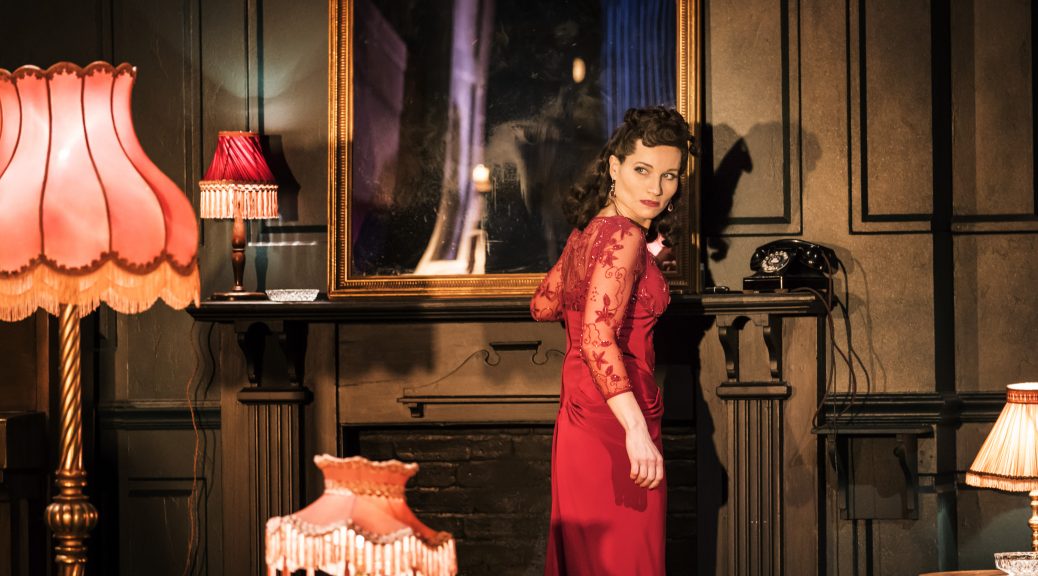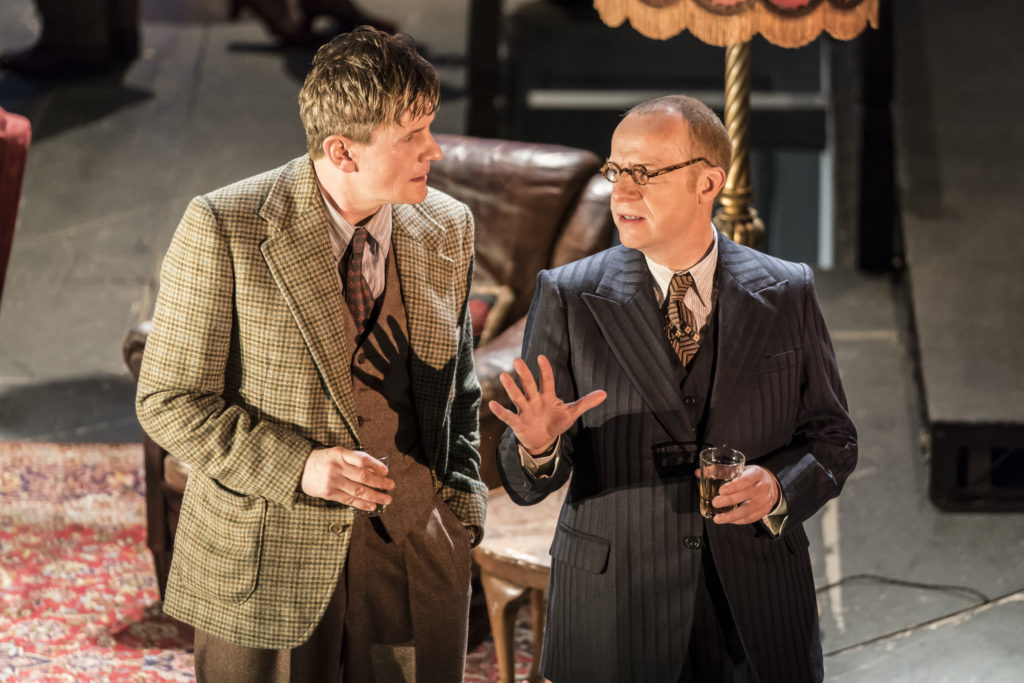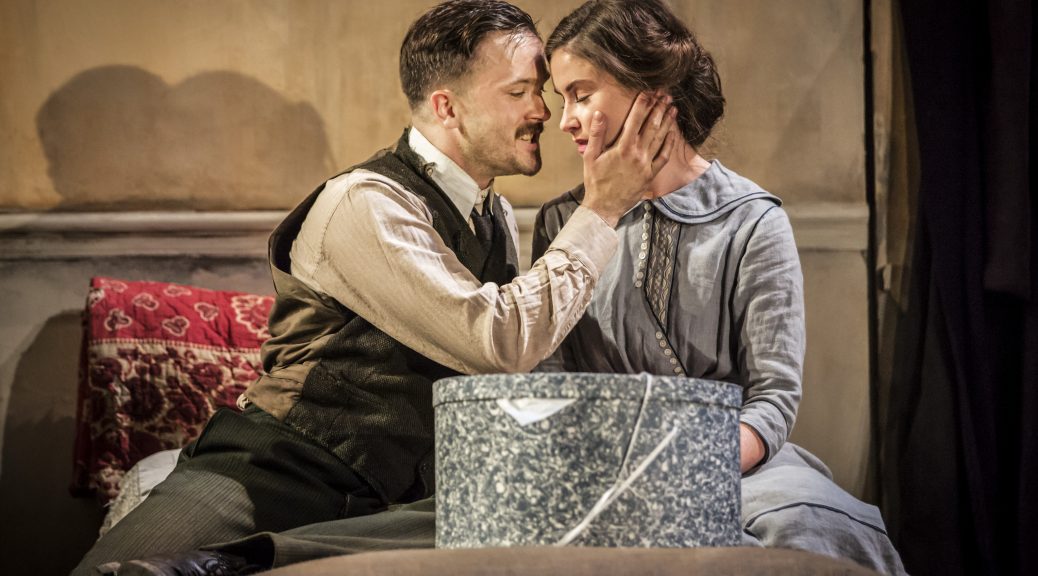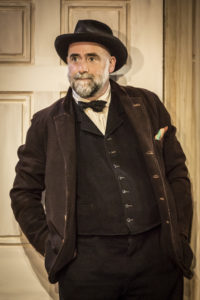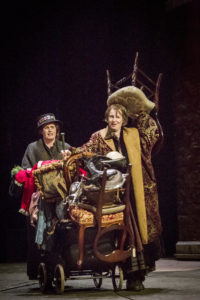Given the pedigree behind this new musical, the result is, regrettably, disappointing. The idea isn’t a bad one. As with the smash hit show Once, it is based on a film by John Carney and the book is by Enda Walsh. Schoolboy Conor forming a band to impress a girl provides a sweet enough coming-of-age story with plenty of 1980s pop music that introduces new songs and has nostalgic appeal. But the show is slow, and director Rebecca Taichman does the energy on stage a disservice.
The new songs, by Carney with Gary Clark, are good and the format brings some coherence. Indeed, favourable comparisons can be made with ones from the period, which are interspersed in a tiresome fashion that slows down the action. Maybe some of the best sound a little like those from Once with the same sincere lyrics and homespun wisdom, but that’s OK. The bold move of making the schoolboy band’s first effort deliberately poor – and plenty of appealing humour (the influence of The Cure is very funny) – is all winning.
The romance between the lead singer Conor and his muse, Raphina, is good. Performed by Sheridan Townsley and Grace Collender with a sense of excitement, they both bring charm and energy using Bob Crowley’s minimal set well. Townsley and Collender sound like stars already and it’s impossible not to wish them the best. So, why my reservations about the show as a whole?

There are big problems for the rest of the cast. The other schoolboys don’t stand out – a pity as that clearly wasn’t the intention and a shame as there’s plenty of talent (note Jack James Ryan’s bully Barry). Even worse, Conor’s parents, who are divorcing, his agoraphobic brother and under-pressure sister are too easy to forget and hard to care about. And it isn’t for lack of time spent on the additional storylines, which are drawn out. Brother Brendan’s song is a tiresome case in point, despite a powerful effort from Adam Hunter in delivering it.
The time spent away from the kids’ story gets messy, culminating in another brother, Brother Baxter, Conor’s school teacher at his religious school. Lloyd Hutchinson, who takes the part, must shoulder any resentment towards the Catholic Church solo. And, not surprisingly, it’s too much for one man. The effort to make his character complicated is so tokenistic that it is close to insulting.
Staying close to the original film is important in a project like this – it’s what a lot of the audience wants. And plenty of the movie’s charm is preserved through the sounds and the central characters. But the result here is bloated and delivers far less than the considerable effort on offer might have produced.
Until 23 August 2025
Photos by Manuel Harlan

